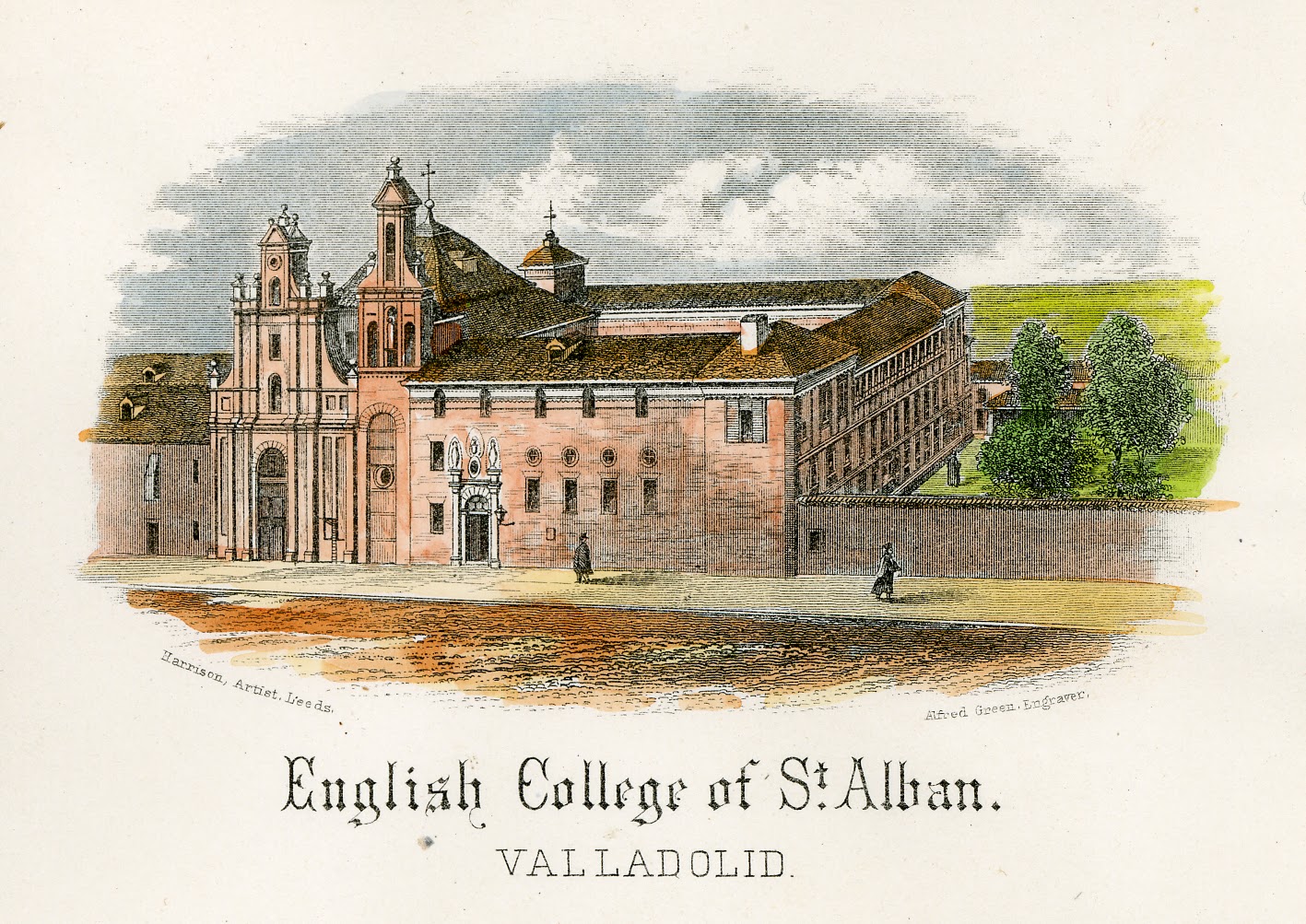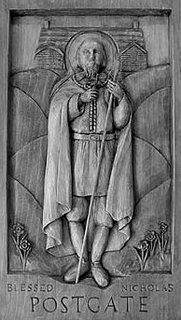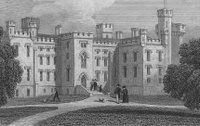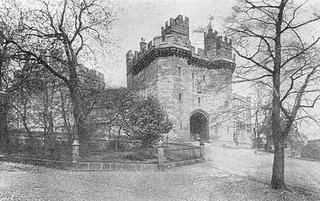In November 1569,
Thomas Percy, 7th Earl of Northumberland, and Charles Neville, 6th and last Earl of Westmoreland, rebelled against Queen Elizabeth.
In November 1569, Thomas Percy, 7th Earl of Northumberland, and Charles Neville, 6th and last Earl of Westmoreland, rebelled against Queen Elizabeth. Their aim was to reestablish the Catholic Religion. After an initial success in which the earls took Durham, the Rising of the Earls was subdued. In December 1569, both earls fled over the border into Scotland. Westmoreland was alone, Northumberland was accompanied by his wife Anne, a daughter of Henry Beaufort-Somerset, 2nd Earl of Worcester.
Northumberland was soon betrayed by his Scottish hosts and sold to the English. He was subsequently put to trial and executed in York in August 1572. He is considered to be a martyr by the Catholic Church and was officially beatified in the 19th century.
In the Summer of 1570, the earl of Westmoreland, fearing that the same betrayal might also happen to him, left Scotland for Flanders. There he would remain in exile until his death in November 1601. He lived in great poverty and would never see his wife (d. 1593) and four daughters again. The eldest daughter, Margaret Neville (b. 1564), was herself tried in 1594 and sentenced to death for having been found in the company of a Catholic priest. She was, however, pardoned.
Anne, the Countess of Northumberland, also left Scotland and travelled to Flanders. She had given birth to a baby in Old Aberdeen on 11 June 1570 and on 23 August boarded a ship, arriving with her baby at Bruges on 31 August 1570. In Flanders, she was to live in various places, i.a. Malines (1572), Brussels (1574), Liege (1575). She died at Namur on 17 October 1596.
Sir Cuthbert Sharp in his 1840 account of « The Rising in the North ; The 1569 Rebellion » mentions Thomas Percy and his wife as having one son, « Thomas, died young (1560) », and four daughters : « Elizabeth, m. Richard Woodroffe, of Wolley, co. York », « Lucy, m. Sir Edward Stanley, of Eynsham, co. Oxon. », « Jane, m. Lord Henry Seymour », and « Mary, who on the authority of a MS belonging to the English Benedictine Dames (formerly at Bruxelles, now at Winchester) printed in the Catholic Magazine for August 1838, was born on the 11th of June 1570. After the death of the Countess, she came into the low countries, to take possession of what was left her by her mother, but more by her desire to dedicate herself to the service of God, in Holy religion. She became the founder of the Benedictine Dames, at Bruxelles.
» (Sharpe, pp 349-350)
If this is true - Mary, being born on 11 June 1570 and coming to Flanders after the death of her mother in 1596 - it means that her mother must have left her newborn child behind in Scotland when she departed for Flanders in August 1570. However, all sources indicate that she took her child along with her.
The Earl and Countess of Northumberland in November 1569 had left a number of their toddlers behind in their house in Topcliffe in Yorkshire. The rebellious earls, moving in from the North had hoped to take Yorkshire very easily and the Earl and Countess of Northumberland had planned to join their children there. But events turned out otherwise and the rebels fled to Scotland. The children were captured in Topcliffe by their uncle, Henry Percy, the later 8th Earl of Northumberland. To the surprise of his brother, Henry sided with Queen Elizabeth during the rebellion and moved his soldiers against the rebels. He was afterwards rewarded for this loyalty with his brother's earldom. Henry Percy wrote to the Earl of Sussex on 9 January 1570 that « Passing by the younge ladys, I founde them in harde case. They wolde gladly be removyde ». He took them along and raised them within his own family, which soon moved to the Percy castle at Petworth.
Edward Barrington de Fonblanque writes in his book « Annals of the House of Percy » that four daughters survived the 7th Earl of Northumberland. Fonblanque mentions five children (p. 125) : 1. Elizabeth, the eldest (b. 1559), m. Richard Woodruffe of Wolley 2. Thomas (b. 1560, d. 1560) 3. Mary (b. 1563, d. 1643), founder of the Benedictine Dames at Brussels 4. Lucy, m. Sir Edward Stanley of Eynsham 5 . Jane, the youngest daughter, m. Lord Henry Seymour He does not mention a sixth child, born in Old Aberdeen on 11.6.1570, and explicitly states Jane to be « the youngest daughter », while Mary, founder of the English convent in Brussels, is the second daughter, born in 1563.
Fonblanque, who had access to the family archives of the Percies at Syon House and Alnwick Castle, wrote his book in 1887. The genealogical annex of the book, however, gives a totally different version than the text. Here, Mary, second daughter, is stated to have married Sir Thomas Grey of Wark, while there is a sixth child, a second Mary (« Maria »), born on 11.6.1570, who is said to have been the founder of the Brussels Benedictine convent.
In 1902 Gerald Brenan published his « History of the House of Percy ». Brenan complains that he was denied access to the Percy archives : « The present Duke of Northumberland objected to further search among the documentary collection of Alnwick Castle and Sion House as unnecessary » (Brenan, vol. 1, p. XVI), causing Brenan to rely heavily on Fonblanque's Annals, « a work prepared practically under the eye of the late Duke of Northumberland, and largely from original sources. » (ib.) Brenan also mentions two Marys, one married to Thomas Grey of Wark, the other becoming a Benedictine nun in Brussels. However, he notices that something must be wrong there and states that Fonblanque and others often confuse the first « Mary » with the second « Maria ».
I am told that Burke in his older editions also mentions a « Mary » married to Thomas Grey of Wark, as well as a « Maria », founder of the Brussels convent. In later editions, however, Burke omits the first Mary (b. 1563) and retains only the latter, which then becomes Northumberland's youngest daughter.
In September 1591, Charles Paget, an English Catholic exile in Antwerp, writes a letter to the Percy family in London, to announce that the Countess of Northumberland has died and that her youngest daughter Jane is urgently requested to come to Flanders in order to collect her mother's belongings. The Countess only died in 1596. Paget's letter is a ruse to get the youngest daughter, Jane, over to Flanders. Brenan does not know what to make of this letter, thinking that the youngest daughter, Mary, is already in Flanders. He writes : « Paget appears to have forgotten lady Maria. The latter had been her mother's companion and solace from the time, twenty years before, when they left Old Aberdeen together. Lady Mary had surely the best right to what little the Countess left ».
But in reality, lady Mary (b. 1563), had not left Scotland with her mother in 1570. She came to Flanders many years later, as is stated on her epitaph in Brussels : « hic jacet domina Maria Percy filia Thomae Percy Northumbriae comitis, quae fidei confessione in Anglia carceribus diu toleratis in Belgio exul hoc nobilium virginum coenibium sub regula S. Patris Benedicti, propriis amicorumque, ejus instinctu, denariis struxit. Obiit XIII september anno MDCXLII R.I.P. » « Here lies lady Mary Percy, daughter of Thomas Percy, Earl of Northumberland. Because of her faith she suffered imprisonment in England for a long time and came as an exile to the Netherlands where she founded this convent for noble women under the rule of St. Benedict, which convent was founded on her initiative and with her money and that of her friends. She died 13.9.1642. May she rest in peace. »
According to some sources, she was 80 years old when she died, which is correct if she was born in 1562-63. The « long imprisonment in England » which the epitaph mentions (« in Anglia carceribus diu toleratis »), probably refers to the unhappy period of her life that she lived in her uncle's household in Petworth. After her mother's death, Mary Percy in 1599 founded the English Benedictine convent in Brussels. She was chosen as abbess of the convent and never returned to England. In « Gallia Christiana », vol. V, pp. 59-60, we read : « Haec abbatia ord. S. Benedicti initia sua debet nobili domicellae Mariae Percy filiae Thomae comitis de Northumberland in Anglia Martyrio coronati, quae cum ob fidem catholicam e domo paterna fugisset. » : « This abbey of St. Benedict was founded by lady Mary Percy, daughter of Thomas, Earl of Northumberland, who died in England as a martyr. She fled her paternal home because of her Catholic faith. » Here again, we have to conclude that Mary (Maria) Percy, founder of the English Benedictine Dames at Brussels, was raised in her uncle's household at her father's house in Petworth, and that she can not have been the child born on 11.6.1570 in Old Aberdeen.
As far as I know, there are no documents (unless maybe in the Percy family archives in Alnwick or Sion House ?) stating who this mysterious child is. When the child was baptised, its sex was not mentioned on the certificate. This could have been done on purpose, which makes sense if the baby was a boy and an heir to the 7th Earl of Northumberland. That would also explain why the Countess of Northumberland felt unsafe in Scotland and almost immediately after its birth left for Flanders. It also explains why in 1902 the Duke of Northumberland was reluctant to open the Percy family archives to Brenan when he wanted to investigate the confusion surrounding the two Marys, and why Fonblanque, being under scrutiny of the Duke of Northumberland in 1887 inserts a genealogical annex to his book that is totally different from his book's account.
On 13 August 1620, a certain John Percy receives an official recognition of his nobility from the Spanish authorities in Brussels. He claims to be « fils de Jean Piercy, d'extraction angloise, et de Judoca Reygers » : « son of John Percy, of English origin, and Judoca Reygers ». An abbreviated copy from ca 1675 of this document can be found in the Royal Library in Brussels. The original was lost in 1695 in the great fire of Brussels, when the French army bombarded the town and the whole city center was demolished. According to his descendants, this Jean (John) Piercy, who married Judoca Reygers, was the son of Thomas Percy and came with his mother to Flanders. He married a daughter of the wealthy Reygers family. It was the same Brussels family that financially helped to sponsor the English Benedictine convent, founded by Mary Percy. One of the patrons of the convent was lady Agatha Reygers.
Around 1670, one of the grandsons of Percy-Reygers, Don Carlos Piercy, a knight in the service of the Spanish King, left for England to defend his family's claim to the earldom of Northumberland, but he failed in his duties. In his book « Armorial General de la Noblesse Belge » Baron de Rijckman de Betz writes : « Charles Percy fut envoye en Angleterre, vers 1670, pour veiller aux droits de sa famille et negligea tout, sauf de dissiper en folles depenses les sommes dont-on l'avait muni. » Today, members of the Percy (or « Persy ») family still live in the Aarschot region, between Malines, Louvain and Brussels. They are lower middle class people, but claim to be direct descendants in the male line of the great Harry Hotspur and of the Blessed Thomas Percy, 7th Earl of Northumberland.
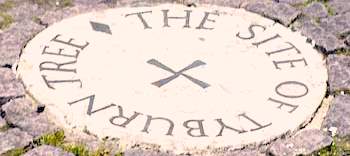

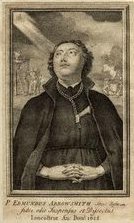


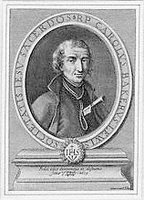

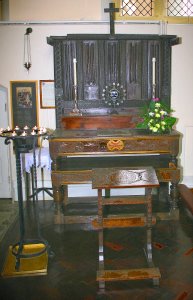
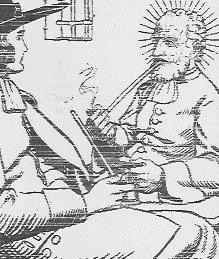
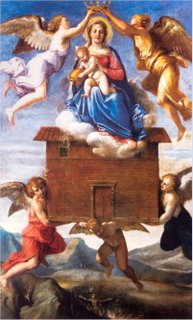






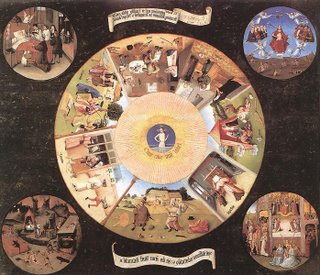
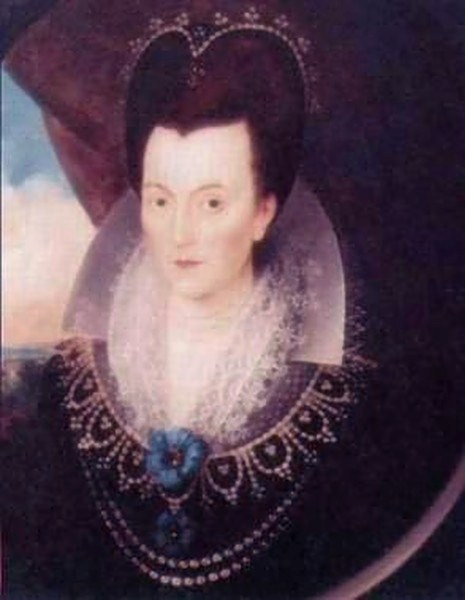

.jpg)
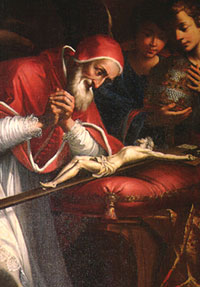


_-_Google_Art_Project.jpg)
